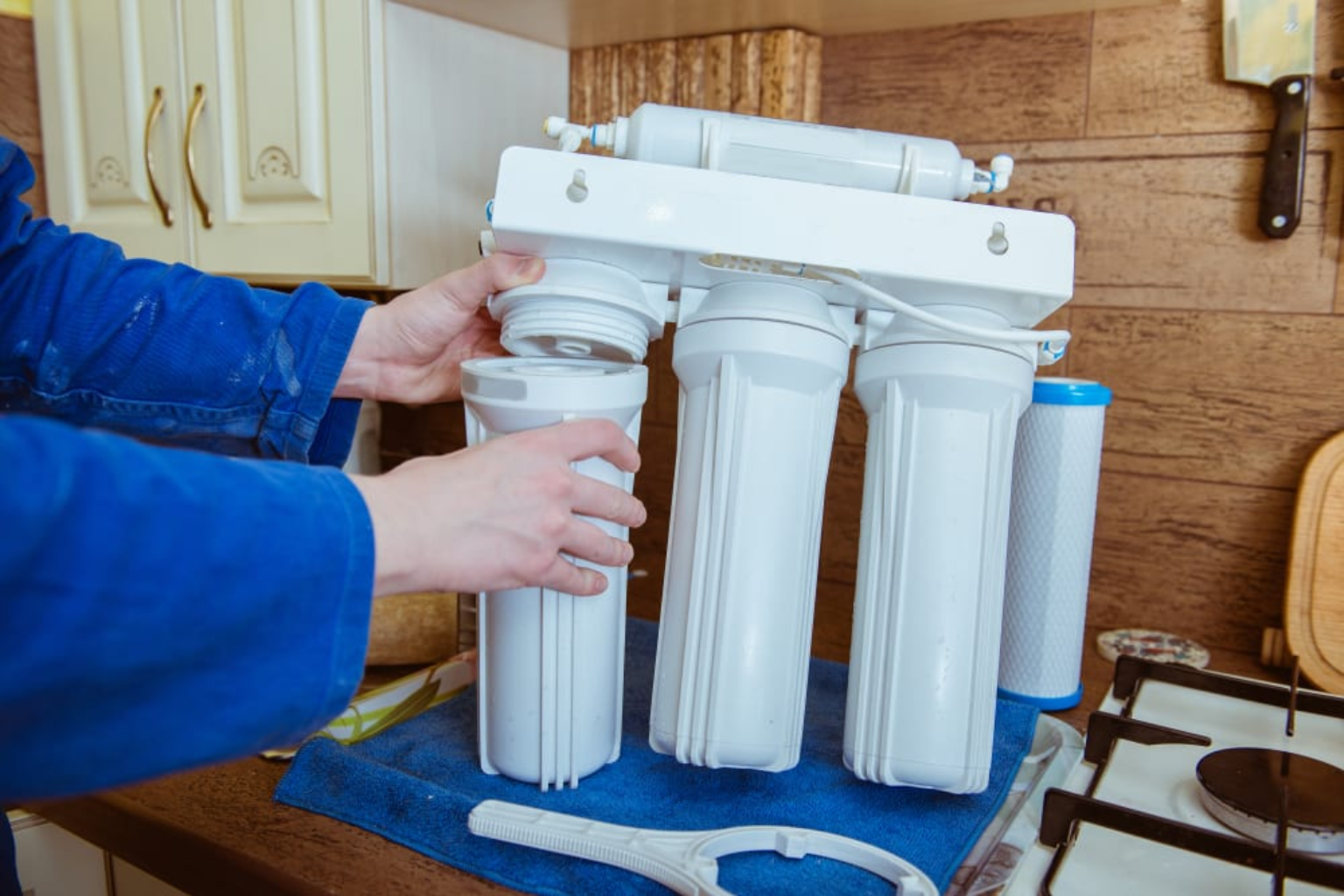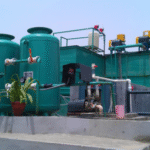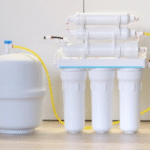If you’ve lived in Houston for more than a few months, you’ve probably noticed something about the water. It’s not bad exactly, but it’s not exactly great either. The taste can be a little flat, the feel of it on your skin leaves you reaching for lotion more than you’d like, and your appliances—well, let’s just say they don’t thank you for it. That chalky film in your coffee maker, or the soap that never seems to rinse off in the shower? Yep, that’s hard water. And Houston’s got plenty of it.
Now, some people shrug it off as “just how things are here.” But others (maybe you’re one of them) start looking into solutions, asking neighbors, or going down rabbit holes of water treatment websites. The truth is, while hard water isn’t usually harmful to your health, it can wear down your home, your wallet, and honestly, your patience.
Why Houston’s Water Feels Different
Houston’s water supply comes from a combination of surface water (like lakes and reservoirs) and groundwater. Both carry minerals, especially calcium and magnesium. When levels climb above what’s considered “normal,” you get hard water. For perspective, Houston often measures at 120–150 parts per million of hardness—on the higher end of the scale. That’s why you notice spots on your glasses, buildup in sinks, and that constant “dry skin” feeling after a shower.
It’s not dangerous in the way lead or arsenic contamination would be. But when you factor in appliance efficiency, plumbing longevity, and personal comfort, it becomes pretty obvious why so many Houstonians search for Houston hard water treatment options. The goal isn’t just clean water—it’s softer, kinder water that makes life feel smoother in the literal sense.
The Ripple Effect of Hard Water in Daily Life
Think about the ripple effect for a minute. Hard water shortens the lifespan of dishwashers, coffee makers, washing machines. You end up using more detergent and soap to get the same results. Showers don’t feel as refreshing. Clothes lose softness quicker. And for folks with sensitive skin, the difference is more than just cosmetic—it can mean flare-ups of dryness or irritation.
The costs creep in quietly too. An inefficient water heater clogged with scale needs more energy to do its job. Multiply that over months and years, and it’s like a silent tax on your utility bills. Not to mention the repair calls when plumbing or appliances struggle under buildup.
So, while hard water isn’t catastrophic, it’s the steady drip of frustration (and expense) that makes people consider their options.
Exploring the Tools in the Toolbox
When you start digging, you realize there isn’t just one fix—it’s a spectrum. Traditional water softeners, salt-free conditioners, reverse osmosis systems, carbon filters…the list goes on. Each has strengths and drawbacks, and the “right” choice really depends on your goals.
Some people want crystal-clear drinking water and invest in reverse osmosis. Others focus on whole-home comfort and lean toward softeners. There are even eco-conscious homeowners who prefer salt-free systems to avoid salt discharge into the environment. The important part? Matching the system to your lifestyle, not just grabbing whatever’s on sale at the big-box store.
Finding the Best Fit for Houston’s Unique Water
One of the most common questions people ask is, “Okay, but what’s the best system for Houston specifically?” Fair point. The truth is, there’s no one-size-fits-all. But if you’re looking for the best water conditioner for Houston water, the sweet spot tends to be systems designed with higher mineral levels in mind.
That means paying attention to grain capacity (for softeners), maintenance requirements, and efficiency. Some systems need regular salt refills, while others are set-and-forget for months at a time. And in Houston’s case, because the water hardness is consistent but not extreme compared to some parts of the country, a mid-range softener or conditioner is often more than enough.
It’s a bit like choosing a mattress. Everyone’s got their preferences—firm, soft, hybrid—but the key is understanding your body (or in this case, your household needs) and finding what feels right.
Why Testing Should Be Step One
Before buying anything, though, here’s a little insider advice: get your water tested. Not just a guess, not just “my neighbor said it was hard,” but an actual test. This gives you real numbers—hardness levels, chlorine presence, maybe even contaminants unique to your part of town.
A lot of companies will let you schedule free water test Houston with no obligation. And honestly, it’s worth it. Imagine trying to fix your car without ever looking under the hood. That’s what it’s like buying a water treatment system without a test—you’re going in blind.
The results help you make an informed decision instead of a rushed one. Sometimes people discover they don’t even need a whole-house system, just a targeted fix. Other times, the test uncovers something they didn’t expect—like high chlorine levels—that shifts priorities.
Real-Life Stories: Neighbors Who Made the Switch
Take Maria, a Houston mom of three who finally invested in a conditioner after dealing with years of laundry headaches. Suddenly, her whites stayed white, the kids stopped complaining about itchy skin, and her detergent budget dropped. Or James, a single guy in Midtown who thought water treatment was unnecessary until his coffee machine broke for the third time. Now, with a compact under-sink system, he swears his morning coffee tastes like it’s from a café.
These aren’t sales pitches; they’re just the reality of how small tweaks to water quality ripple into daily life. And honestly, that’s the part we don’t talk about enough. It’s not about fancy systems or shiny brochures—it’s about showers that feel better, machines that last longer, and little daily annoyances quietly disappearing.
So, What’s the Next Step?
If you’re still on the fence, start small. Get that test. Talk to a local water specialist, not just a big-box sales clerk. Think about your priorities—do you care most about how your skin feels, your appliances’ lifespan, or the taste of your drinking water? Once you know that, the path forward gets a whole lot clearer.
And remember, this isn’t about chasing perfection. It’s about making your home feel a little more comfortable and saving yourself from those quiet frustrations that add up over time.
Closing Thoughts
Water is one of those invisible backdrops of our lives. We drink it, bathe in it, cook with it, clean with it. And yet, most of us only notice it when something feels off—like the film on a glass or the stiffness of a freshly washed shirt. Houston’s hard water isn’t going away anytime soon, but that doesn’t mean you have to live with it unfiltered.
Whether you go for a softener, a conditioner, or something else entirely, the real win is in reclaiming the comfort and efficiency you deserve. At the end of the day, better water isn’t just about pipes and machines—it’s about how your home feels, day in and day out.



